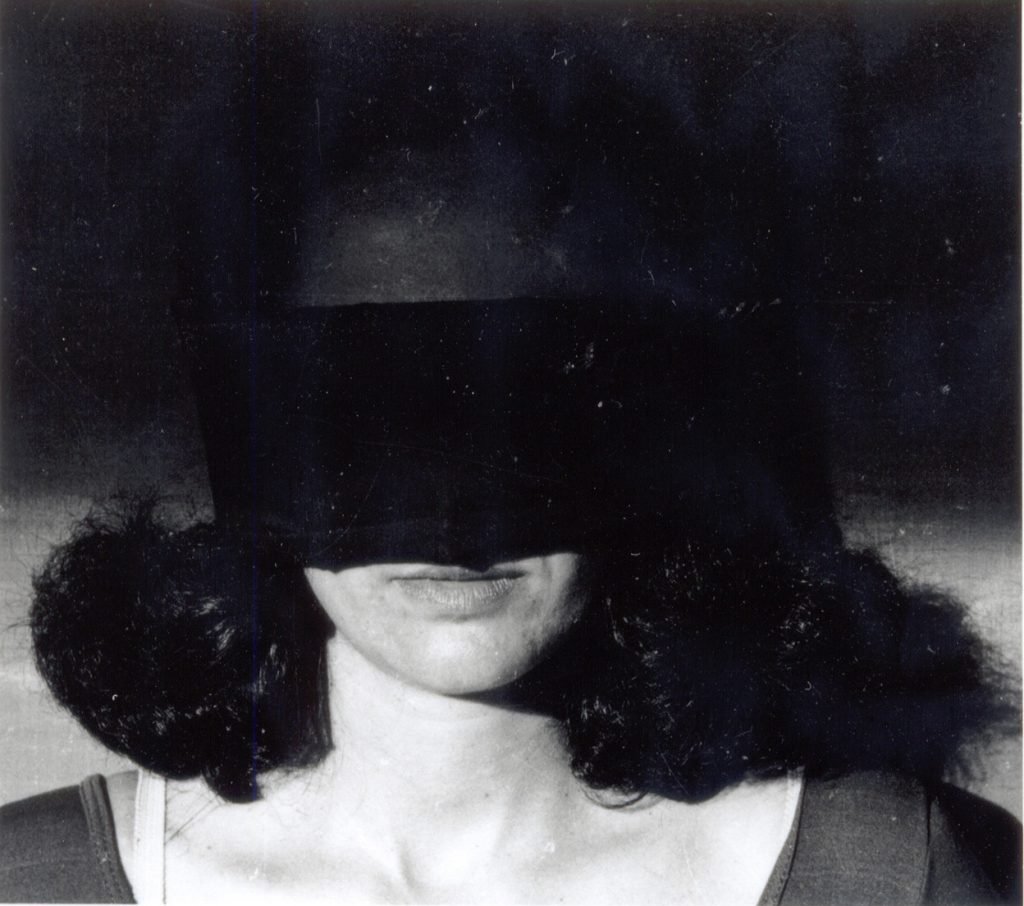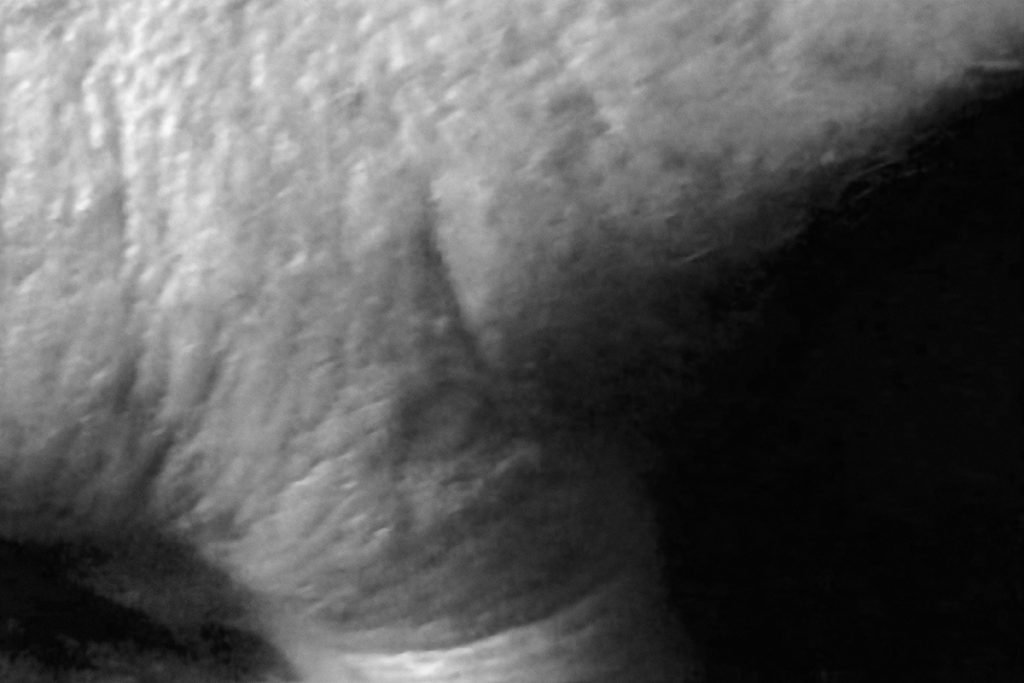The show, which occupies two venues of Galleria Raffaella Cortese, encompasses photographic, sculptural, and video works from several decades of the Italian-born Brazilian artist’s multifaceted practice. The exhibition acts as a survey through the structures of poetic signifiers that weave threads across Maiolino’s unmistakable visual language.
Aqui e Agora, “here and now”, determines a point in time, a present, in which the artist’s decades-long practice composes a vocabulary that is agile, dense, and distinctive. Through the interpretation of feminine daily imagery and in reaction to the oppressive dictatorship and censorship in Brazil during the 1970s and 1980s, Maiolino’s work combines poetic and understated gestures with urgent and politically charged actions: the freedom of expression she has conquered across multiple media has allowed her to develop simultaneous and potent visual languages.
In the venue at via Stradella 7, Maiolino presents recent and historical works in a stark dualism of black and white, political and aesthetic. A pair of ceramic sculptures installed on black metal tables lies in the center of the space, playing on their chromatic distance and the proximity of their organic shapes. On opposing walls, photographs from Maiolino’s renowned Fotopoemação (Photo poem-action) series are placed in dialogue with one another. On one side, the four photographs Aos Poucos (Little by Little), 1976, act as a testament to Maiolino’s political actions opposing the Brazilian military regime’s oppression, in which she often employed her own physicality. The gallery’s back wall instead shows the more recent series Corpo/Paisagem (Body/ Landscape), 2018, which marks a shift from a fiercely political use of the body to an intimate, quiet one: the artist’s facial features become a landscape, and every detail a geographic element to explore. A rarely seen video from 2014, narrated in Portuguese by Maiolino, accompanies the images of bodies and places the artist’s relationship to the landscape in further focus.
In via Stradella 1, two tables display an encyclopedic index of Maiolino’s film and photographic work, acting as a personal exploration of the artist’s own imagery: photographs and stills from videos are arranged in two digital collages that offer a unique chance to travel through years and dialogues. Language and, more specifically, the written word, are evoked by two sculptures installed on the gallery walls. Respectively made of metal and raku ceramic, key materials employed by the artist throughout her career, the simple shapes of the sculpture’s elements read as if they were punctuation written on a blank sheet of paper.
Maiolino, across 50 years of intense work, has created a universe of signs and meanings that are left to the viewer to combine and interpret, while expressing, at the same time, an incredibly intimate and distinctive vocabulary.

Anna Maria Maiolino, Sotto Voce, 2016
Video, sound
6'46''
Voice: Anna Maria Maiolino
Edition: Anna Maria Maiolino and Mateus Pires
Courtesy of the Artist and Galleria Raffaella Cortese, Milano
(THE VIDEO WAS ONLINE FROM JANUARY 21st TO FEBRUARY 15th 2020)
Anna Maria Maiolino
Sem Título (Untitled), serie Corpo/Paisagem - Fotopoemação (from Body/Landscape - Photopoemaction series), 2018
Photo in b/w, digital print
60 × 90 cm
Ed. 3 + 2 AP
Courtesy of the Artist and Galleria Raffaella Cortese, Milano




Anna Maria Maiolino
Aos Poucos (Little by Little), serie Fotopoemação (from Photo-poem-action series), 1976-2006
4 b/w photographs, digital print
40,5 × 44,6 cm each
Ed. 5 + 2 AP
ph. Max Nauenberg
Courtesy of the Artist and Galleria Raffaella Cortese, Milano
Anna Maria Maiolino
Um Tempo (uma vez), [One Time, (once)], 2009/2012
Video, digital camera
durata: 7’ 34” Ed. 5 + 2AP Sound: Anna Maria Maiolino and Mateus Pires Photography: Anna Maria Maiolino Edition: Anna Maria Maiolino and Rafael Costa Special guest: Gabriel Gerchman, Verônica Gerchman and João Araújo Courtesy of the Artist and Galleria Raffaella Cortese, Milano
Born in Scalea, Italy, 1942. Lives and works in Sao Paulo, Brazil. Drawing from the everyday female consciousness and from an oppressive, censorial dictatorship – as experienced in 1970s and 1980s Brazil – Italian born Anna Maria Maiolino has produced works steeped in vital force, in a wide range of languages and media throughout her artistic career: from performance to sculpture, from videos to photography, installation and drawing.
Maiolino was involved in Brazil’s 1960s New Figuration movement: her representational prints and drawings from these years were acts of resistance to the national military regime, rising urban inequalities, and culturally ingrained patriarchy. She would later cultivate an interest in spatial and existential issues with a shift towards Minimalism and Conceptualism, creating installations that coaxed interaction between viewer and object.
Since 1989, Maiolino has started working with clay, crafting impermanent labor-intensive installations that foreground her physical handling of the material, references to the unconscious and recurrent gestures of everyday life.
Maiolino’s works are based on processes of creation necessarily paired with destruction, and almost constantly on matters of identity, from the subjective and universal point of view. Developing a dialogue between opposing and complementary categories, her artistic practice dissolves between dichotomies between the inside and the outside, between emptiness and matter, ancient and contemporary.
Maiolino has been invited to several international biennials such as La Biennale de Lyon (2017), 10th Gwangju Biennale, Gwangju (2014) and Documenta 13, Kassel (2012). Recently, she had solo shows at: Whitechapel, Londra (2019-2020) PAC, Milan (2019); MOCA, Los Angeles (2017); Berkeley Art Museum and Pacific Film Archive (2014); Malmo Kunsthalle (2011); Centro Galego de Arte Contemporânea, Santiago de Compostela (2011); Fundació Antoní Tàpies, Barcelona (2010); Camden Arts Centre, London (2010): Pharos Centre for Contemporary art, Cipro (2007).
Recent group shows include: Radical Women: Latin American Art 1960-1985, Hammer Museum, Los Angeles (2017); Delirious: Art at the Limits of Reason, The Met Breuer, New York (2017); Acervo em Transformação and Histórias da Infáncia, MASP, Sao Paulo (2016); La Grande Madre, Palazzo Reale, Milan (2015); The World Goes Pop, Tate Modern, London (2015).








